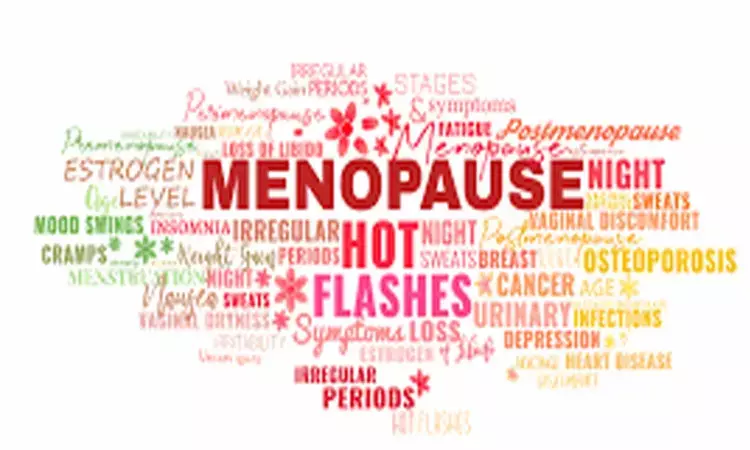- Home
- Medical news & Guidelines
- Anesthesiology
- Cardiology and CTVS
- Critical Care
- Dentistry
- Dermatology
- Diabetes and Endocrinology
- ENT
- Gastroenterology
- Medicine
- Nephrology
- Neurology
- Obstretics-Gynaecology
- Oncology
- Ophthalmology
- Orthopaedics
- Pediatrics-Neonatology
- Psychiatry
- Pulmonology
- Radiology
- Surgery
- Urology
- Laboratory Medicine
- Diet
- Nursing
- Paramedical
- Physiotherapy
- Health news
- Fact Check
- Bone Health Fact Check
- Brain Health Fact Check
- Cancer Related Fact Check
- Child Care Fact Check
- Dental and oral health fact check
- Diabetes and metabolic health fact check
- Diet and Nutrition Fact Check
- Eye and ENT Care Fact Check
- Fitness fact check
- Gut health fact check
- Heart health fact check
- Kidney health fact check
- Medical education fact check
- Men's health fact check
- Respiratory fact check
- Skin and hair care fact check
- Vaccine and Immunization fact check
- Women's health fact check
- AYUSH
- State News
- Andaman and Nicobar Islands
- Andhra Pradesh
- Arunachal Pradesh
- Assam
- Bihar
- Chandigarh
- Chattisgarh
- Dadra and Nagar Haveli
- Daman and Diu
- Delhi
- Goa
- Gujarat
- Haryana
- Himachal Pradesh
- Jammu & Kashmir
- Jharkhand
- Karnataka
- Kerala
- Ladakh
- Lakshadweep
- Madhya Pradesh
- Maharashtra
- Manipur
- Meghalaya
- Mizoram
- Nagaland
- Odisha
- Puducherry
- Punjab
- Rajasthan
- Sikkim
- Tamil Nadu
- Telangana
- Tripura
- Uttar Pradesh
- Uttrakhand
- West Bengal
- Medical Education
- Industry
Women with severe Hot flushes and night sweats more likely to have CVD

Researchers at University of Queensland have found that women who have hot flushes and night sweats after menopause are 70 per cent more likely to have heart attacks, angina and strokes. The study has been published in American Journal of Obstetrics and Gynecology.
Menopausal vasomotor symptoms (VMS, i.e., hot flushes and night sweats) have been associated with unfavorable risk factors and surrogate markers of cardiovascular disease (CVD), but their association with clinical CVD events is unclear.
School of Public Health PhD student Dr Dongshan Zhu has found women of any age who experience hot flushes and night sweats, also known as vasomotor symptoms or VMS, are more likely to experience non-fatal cardiovascular events.
"Until now, it's been unclear if VMS is associated with cardiovascular disease, but now we know it to be true," Dr Zhu said.
"Further, VMS before menopause increases a woman's chance of cardiovascular events by 40 per cent."
Dr Zhu also found that the risk of cardiovascular events was more related to the severity of the hot flushes and night sweats rather than the frequency or duration.
"We found that women with severe VMS were more than twice as likely to experience a non-fatal cardiovascular event compared with women who had no symptoms," he said.
Dr Zhu used data from InterLACE, a major collaboration of 25 studies of more than 500,000 women around the world.
Senior author on the study Professor Gita Mishra said the findings may have important clinical implications.
"This research helps to identify women who are at a higher risk for the development of cardiovascular events and who may need close monitoring in clinical practice," Professor Mishra said.
Journal Reference:
Dongshan Zhu, Hsin-Fang Chung, Annette J. Dobson, Nirmala Pandeya, Debra J. Anderson, Diana Kuh, Rebecca Hardy, Eric J. Brunner, Nancy E. Avis, Ellen B. Gold, Samar R. El Khoudary, Sybil L. Crawford, Gita D. Mishra. Vasomotor Menopausal Symptoms and Risk of Cardiovascular Disease: A pooled analysis of six prospective studies. American Journal of Obstetrics and Gynecology, 2020;
Dr Kamal Kant Kohli-MBBS, DTCD- a chest specialist with more than 30 years of practice and a flair for writing clinical articles, Dr Kamal Kant Kohli joined Medical Dialogues as a Chief Editor of Medical News. Besides writing articles, as an editor, he proofreads and verifies all the medical content published on Medical Dialogues including those coming from journals, studies,medical conferences,guidelines etc. Email: drkohli@medicaldialogues.in. Contact no. 011-43720751


